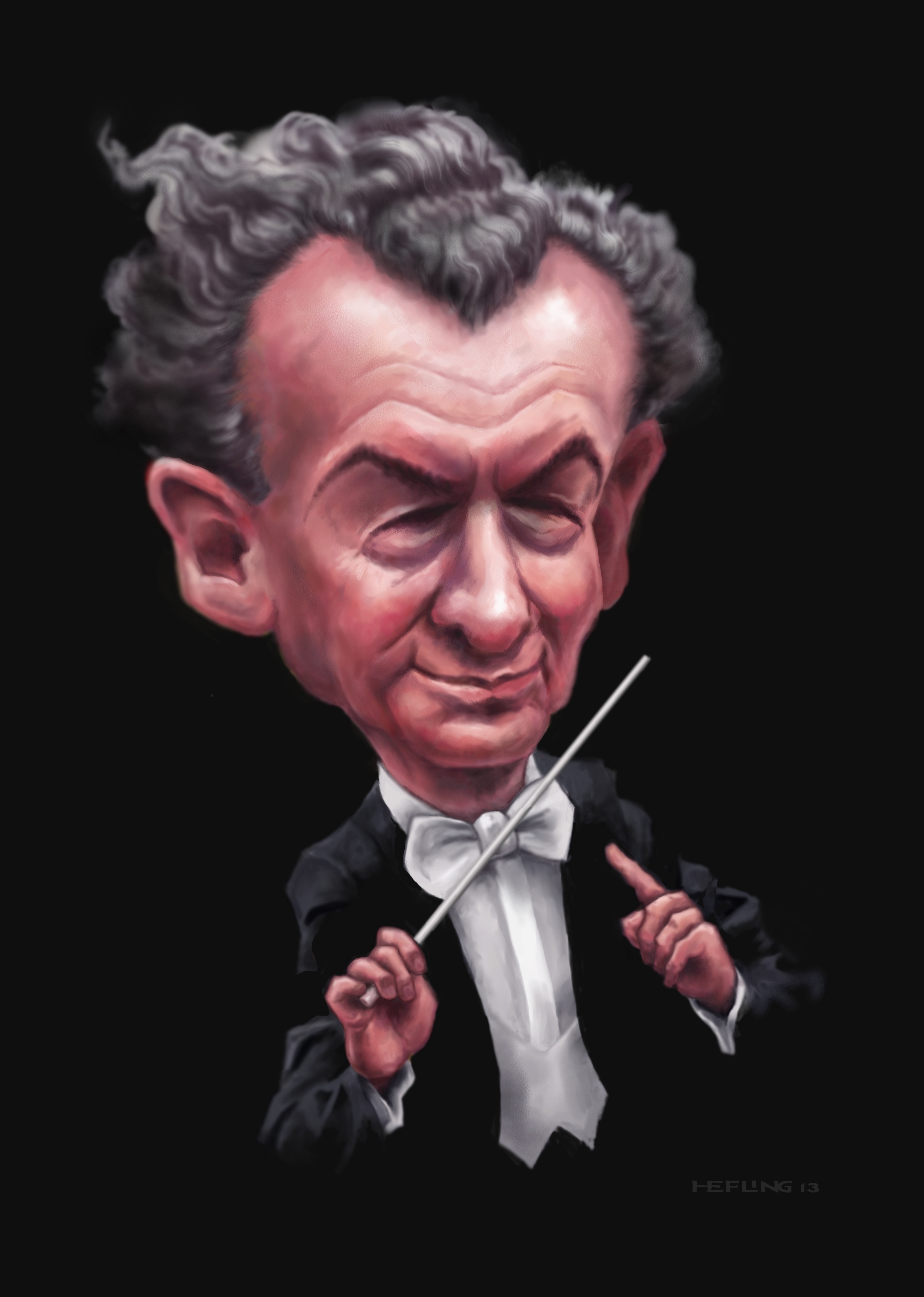BENJAMIN BRITTEN’S OPERA Billy Budd is based on a famous, sexually ambiguous novella by Herman Melville (written in 1891 but not published until 1924). The opera focuses on the angelically beautiful young innocent who could have been saved, but whose stammer prevents him from speaking when he’s falsely accused and is destroyed by evil powers. Britten and his librettists accentuated the homosexual themes that are hinted at in the novella. The opera portrays in verbal, visual, and musical terms how the adult characters struggle with their fierce and destructive desires. The conflict between good and evil represents the repressed and disguised love that dare not speak its name.
This opera was created in a homosexual milieu. E. M. Forster, the librettist of Billy Budd, was a repressed homosexual. Britten, the composer, and Peter Pears, the leading singer, were long-time lovers. Britten was also in love with the handsome young David Hemmings, who played Billy Budd, and with the attractive young Ronan Magill, who took the role of Tadzio in Britten’s opera Death in Venice. But he restrained himself and did not seduce the boys. David Hemmings recalled: “He was incredibly warm to me, yes. Was he infatuated with me? Yes, he was. He was a gentleman; there was no sort of overt sexuality about it whatsoever” (Carpenter, 1992).
Billy Budd, an unusual subject for an opera, has an inarticulate hero, an elusive narrator, and an all-male cast in the claustrophobic setting of a ship. The story is simple: on a Royal Navy vessel, during the war with revolutionary France in 1797, John Claggart, the Master-at-Arms who’s responsible for discipline on board, is a brutal sadist who resents the youth and innocence of Billy Budd. He accuses Billy of fomenting a mutiny. Billy strikes and kills him, and Captain Vere allows him to be sentenced to death. The cruel officers are very different from Jane Austen’s idealized naval heroes. The harsh conditions justify Samuel Johnson’s observation that “being in a ship is being in a jail with the chance of being drowned.” They also support Winston Churchill’s succinct statement that “the traditions of the Royal Navy are rum, sodomy, and the lash.”
 Forster’s coauthor, Eric Crozier, an experienced librettist who had previously worked with Britten, said: “I was mostly responsible for the technical scenes and the dialogues.” Forster, who had been blocked as a writer and was very keen on doing this project, “undertook what he called ‘the big slabs of narrative’” (Carpenter, 1992). Michelle Fillion (2010) states that “Forster’s text seethes with [Claggart’s] repressed longing for the handsome Billy.” But this theme, more covert than seething, provoked serious conflicts between Britten and Forster. Forster wanted to challenge Captain Vere’s adherence to naval law and make Billy represent—like Maurice, the autobiographical hero of his then unpublished novel—the redeeming power of homosexual love. Criticizing the restrained music for Claggart’s confessional monologue, Forster wrote in a letter to the extremely sensitive Britten: “I want passion—love constricted, perverted, poisoned, but nevertheless flowing down its agonising channel: a sexual discharge gone evil” (Forster, Letters, 1985). Forster’s unintentionally crude phrase, “clear the seamen,” revealed what was on his mind and had to be removed. Britten shifted the emphasis in the story from Billy to Vere, for musical rather than dramatic purposes, so that the baritone Peter Pears could have the leading role.
Forster’s coauthor, Eric Crozier, an experienced librettist who had previously worked with Britten, said: “I was mostly responsible for the technical scenes and the dialogues.” Forster, who had been blocked as a writer and was very keen on doing this project, “undertook what he called ‘the big slabs of narrative’” (Carpenter, 1992). Michelle Fillion (2010) states that “Forster’s text seethes with [Claggart’s] repressed longing for the handsome Billy.” But this theme, more covert than seething, provoked serious conflicts between Britten and Forster. Forster wanted to challenge Captain Vere’s adherence to naval law and make Billy represent—like Maurice, the autobiographical hero of his then unpublished novel—the redeeming power of homosexual love. Criticizing the restrained music for Claggart’s confessional monologue, Forster wrote in a letter to the extremely sensitive Britten: “I want passion—love constricted, perverted, poisoned, but nevertheless flowing down its agonising channel: a sexual discharge gone evil” (Forster, Letters, 1985). Forster’s unintentionally crude phrase, “clear the seamen,” revealed what was on his mind and had to be removed. Britten shifted the emphasis in the story from Billy to Vere, for musical rather than dramatic purposes, so that the baritone Peter Pears could have the leading role.
The historical background, which both Melville and Forster refer to but do not explain, clarifies Vere’s fatal judgment of Billy. In the summer of 1797, a few months before the opera takes place, two major mutinies had erupted in the navy. The mutiny at Spithead, near Portsmouth, in April and May, was essentially a strike aimed at economic problems. It protested against the grim living conditions onboard ships and demanded better food and pay, increased shore leave, and compensation for illness and injury. The negotiated agreement pardoned all crews, reassigned unpopular officers, raised pay, and abolished the purser’s cut of the victuals.
The mutiny in May at the Nore, an anchorage at the mouth of the Thames Estuary, was partly inspired by Spithead, but it expressed in those revolutionary times more radical political ideas. The mutineers demanded pardons, increased pay, changes in the harsh discipline under the Articles of War, and immediate peace with France. The crews were denied food and water, most of the ships refused to sail to France, and the mutiny collapsed. The punishments were severe: 68 men were hanged, imprisoned, or flogged, and many others were transported to Australia. Vere condemns these mutinies as “Revolution, sedition, the Jacobins, the infamous spirit of France.” One sailor adds: “They killed their king, and they’ll kill ours” (Forster and Crozier, 1961). All the sailors are keen to chase and sink the French warship sighted off Finisterre on the northwest coast of Spain, but the enemy escapes in the mist. The ship in the opera, the H.M.S. Indomitable, is a man-of-war that carries 74 guns on two decks, is about 180 feet long, and has a crew of more than 500. The hundreds of sailors, packed into a cramped space for years at a time, desperately need a sexual outlet, and the powerfully striking Billy is a tempting prospect. (The excellent 2003 film Master and Commander gives a vivid sense of life aboard British ships during the Napoleonic wars.)
Two 17th-century Cromwellian poems cast light on the suggestive name and harsh character of Captain Edward Fairfax Vere, a noble descendent of the Elizabethan courtier and poet Edward de Vere, Earl of Oxford. His affectionate nickname, “Starry Vere,” comes from Andrew Marvell’s “Upon Appleton House, to my Lord Fairfax”: “Under the Discipline severe/ Of Fairfax and the Starry Vere.” “Starry” suggests an exalted and idealistic man, but also, as in “starry-eyed,” a romantic who’s easily deceived. John Milton’s sonnet “On the Lord General Fairfax, at the Siege of Colchester” is also illuminating. The poet calls upon the soldier to fight “Till Truth and Right from Violence be freed,/ And Public Faith clear’d from the shameful brand/ Of Public Fraud.” But Vere does not follow the path of his distinguished ancestor. He does not free truth and right from violence or clear Billy Budd—who has not yet reached the full flower of life—from the “shameful brand” of murder.
The poem “Herman Melville,” written by Britten’s former collaborator, W. H. Auden, clarifies the homosexual theme in the opera. Auden describes how Claggart’s frustrated love for Billy turns into both destructive and self-destructive evil:
He has a name like Billy and is almost perfect,
But wears a stammer like a decoration:
And every time they meet the same thing has to happen;
It is the Evil that is helpless like a lover
And has to pick a quarrel and succeeds,
And both are openly destroyed before our eyes.
Billy Budd is framed and retrospectively recalled by Captain Vere’s Prologue and Epilogue. His opening line in the opera, “I am an old man who has experienced much,” recalls the first line in T. S. Eliot’s “Gerontion”: “Here I am, an old man in a dry month.” The Prologue foreshadows the conflict between good and evil in Billy and Claggart, and Billy’s fatal stammer—the “imperfection in the divine image.”
When Billy is seized from his merchant ship and forced to join the navy, he salutes his ship, cries “Farewell, old Rights o’ Man,” and waives his rights as a free man. Claggart thinks Billy is endorsing Tom Paine’s incendiary book and uses that to justify his accusation that Billy has been fomenting mutiny. In his confessional soliloquy on Billy, Claggart aligns himself with the devil and declares his malicious intention to destroy Billy. But he does not explain his motives. He extolls Billy’s virtues and rhetorically declares, “O beauty, O handsomeness, goodness!” He then admits his natural depravity and inborn propensity to evil, which Forster defines as “desire thwarted, desire corrupted into self-hatred” (Moffat, 2010). Finally, he invokes malign fate and declares: “I am doomed to annihilate you, I am vowed to your destruction. I will wipe you off the face of the earth. … With hate and envy I am stronger than love.”
In a private interview with Captain Vere, Claggart denounces Billy as “A common seaman, but a subtle schemer,/ Plotting between decks, sapping loyalties,/ Corrupting messmates … outwards, the flower of masculine beauty and strength. A man-trap lurks under those ruddy-tipped daisies.” The essential but unanswered question, which Billy cannot and Vere will not answer, is, “Why would the master-at-arms accuse a man wrongfully?”
When Claggart accuses Billy face-to-face and Billy cannot speak to defend himself, “Vere lays his hand on Billy’s shoulder [and]Billy’s right fist shoots out, striking Claggart on the forehead” and killing him. Vere’s symbolic touch had assured Billy that Vere returned his love and would protect him, emboldening him to strike down his vicious adversary. Instead, Vere summons a drumhead court martial and tacitly encourages the three officers to condemn Billy to death by hanging.
Three works written about the same time as Melville’s novella suggest that Vere’s decision, though lawful, is severe and unjust. Kipling’s poem “Danny Deever” expresses sympathy for a soldier who is taken to prison for shooting a comrade. In an untitled ballad by A. E. Housman, an innocent youth is hanged for the natural and immutable color of his hair, which symbolizes—soon after the scandalous trials of Oscar Wilde—his innate homosexuality:
’Tis a shame to human nature, such a head of hair as his;
In the good old time ’twas hanging for the colour that it is;
Though hanging isn’t bad enough and flaying would be fair
For the nameless and abominable colour of his hair.
In Joseph Conrad’s “The Secret Sharer” (1910), the runaway sailor Leggatt swims silently up to a ship. He admits he has killed a man who refused to obey a vital command and saved the ship during a violent storm, but the captain rescues, hides, and protects him. Vere, by contrast, hangs Billy, whose killing of Claggart was accidental and partly justified. Vere fears there will be a mutiny aboard his ship if he treats Billy leniently. But hanging the beloved Billy, considered a cruel punishment by the crew, would be even more likely to incite a rebellion.
Apart from the killing, both Claggart and Billy are guilty of capital crimes: Claggart for bearing false witness, Billy for not reporting the mutinous plot when the Novice, incited by Claggart, tried to suborn him. Claggart’s malice is premeditated, Billy’s blow is instinctive. But his motive is ignored, and he’s convicted as if the mortal stroke were deliberate. Vere knows that Billy had not tried to incite a mutiny and had been sorely provoked by Claggart, who set out to destroy him. Vere had several ways to rescue Billy. He could serve on the court martial himself and save Billy’s life or encourage his officers to pardon him. He could commute the sentence, delay it, or appeal it. He could also keep Billy prisoner and try him in an admiralty court, under less volatile conditions, when they reached their home port.
Since homosexual love could not be made explicit in 1951, Vere’s feelings and motives remain ambiguous. But the opera suggests that both Claggart and Vere are in love with the beautiful Billy. Melville noted that Billy’s aristocratic appearance connected him to Vere. Since Claggart cannot allow himself to have sex with Billy, he torments him instead. Since Vere cannot have sex with Billy, he must hang him. He wants to remove the source of temptation and corruption and have him die at the peak of his perfect beauty. Vere finishes what Claggart had begun and, as Michael Wilcox (1997) concludes, “allowed himself to become Claggart’s instrument of destruction.”
Vere, like Claggart and Billy, is also guilty. Billy’s final benediction—“Starry Vere, God bless you!”—proves his inherent purity and innocence. In his retrospective Epilogue that concludes the opera, Vere tries to exonerate himself. His self-serving speech evokes “the peace of God which passeth all understanding” (Philippians 4:7) when claiming: “the love that passes understanding has come to me.” But when Vere suggests his complicity with the diabolical Claggart and admits, “It is I whom the devil awaits,” he confesses that he has committed a sin by choosing revenge over pity and by hanging instead of saving the “angel of God.” Billy is victimized twice: by Claggart’s false accusation and Vere’s blind obedience to the Articles of War. He is also sacrificed by their refusal to recognize their deepest desires and the self-hatred aroused by their tormenting homosexuality.
References
Carpenter, Humphrey. Benjamin Britten: A Biography. Scribner’s, 1992.
Fillion, Michelle, Difficult Rhythm: Music and the Word in E. M Forster. University of Illinois Press, 2010.
Forster, E. M. Selected Letters. Volume Two, 1921-1970. Edited by Mary Lago and P. N. Furbank. Harvard University Press, 1985.
Forster, E. M. and Eric Crozier. Billy Budd. Boosey & Hawkes, 1951; revised edition, 1961.
Moffat, Wendy, A Great Unrecorded History: A New Life of E. M. Forster. Farrar, Straus and Giroux, 2010.
Wilcox, Michael. Benjamin Britten’s Operas. Absolute Press, 1997.
Jeffrey Meyers’ latest books areThomas Mann’s Artist-Heroes (2014),Robert Lowell in Love (2016), andThe Mystery of the Real: Correspondence with Alex Colville (2016). A new book,Resurrections: Authors, Heroes—and a Spy, will appear later this year.





